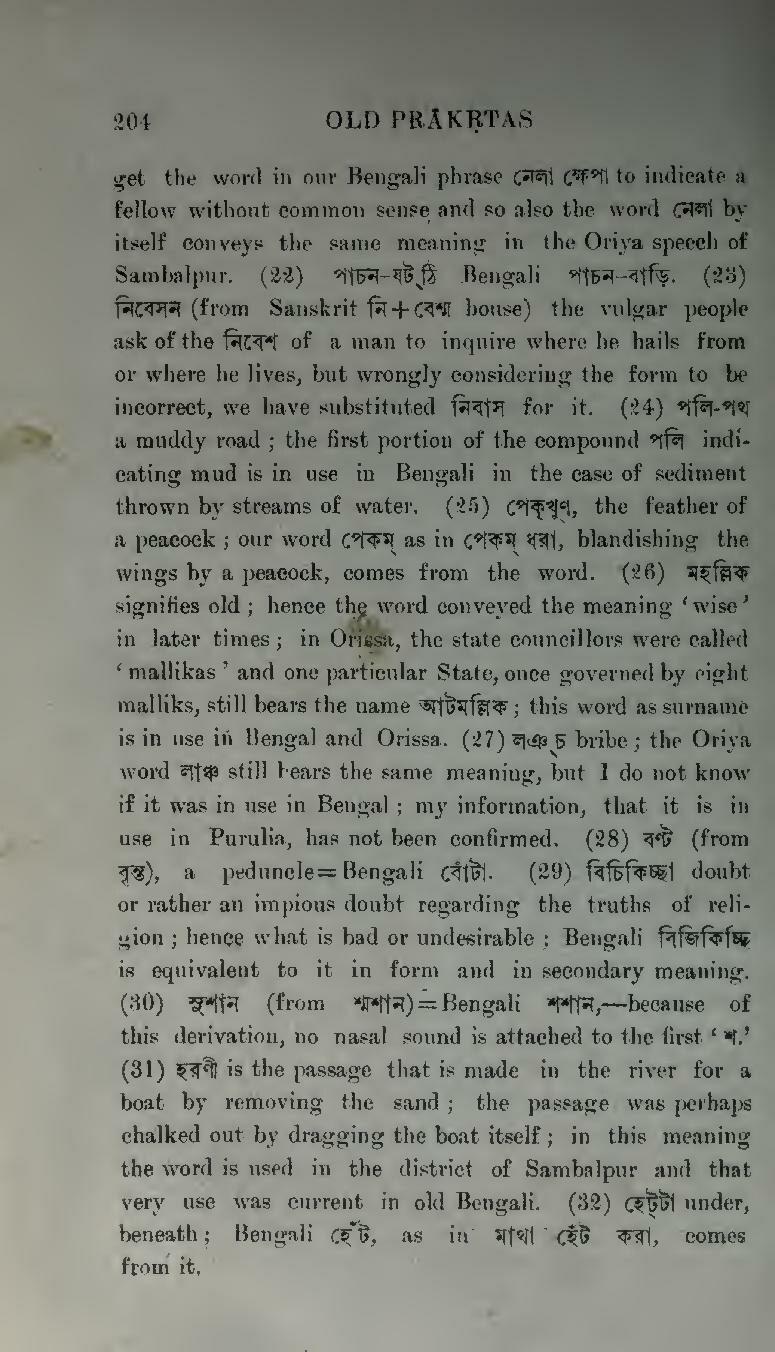get the word in our Bengali phrase নেলা ক্ষেপা to indicate a fellow without common sense and so also the word নেলা by itself conveys the same meaning in the Oriya speech of Sambalpur. (22) পাচন-যট্ঠি Bengali পাচন-বাড়ি. (23) নিবেসন (from Sanskrit নি + বেশ্ম house) the vulgar people ask of the নিবেশ of a man to inquire where he hails from or where he lives, but wrongly considering the form to be incorrect, we have substituted নিবাস for it. (24) পলি-পথ a muddy road; the first portion of the compound পলি indicating mud is in use in Bengali in the case of sediment thrown by streams of water. (25) পেক্খুণ, the feather of a peacock; our word পেকম্ as in পেকম্ ধরা, blandishing the wings by a peacock, comes from the word. (26) মহল্লিক signifies old; hence the. word conveyed the meaning 'wise' in later times; in Orissa, the state councillors were called 'mallikas' and one particular State, once governed by eight malliks, still bears the name আটমল্লিক; this word as surname is in use in Bengal and Orissa. (27) লঞ্চ bribe; the Oriya word লাঞ্চ still bears the same meaning, but I do not know if it was in use in Bengal; my information, that it is in use in Purulia, has not been confirmed. (28) বণ্ট (from বৃন্ত), a peduncle = Bengali বোঁটা. (29) বিচিকিচ্ছা doubt or rather an impious doubt regarding the truths of religion; hence what is bad or undesirable; Bengali বিজিকিচ্ছি is equivalent to it in form and in secondary meaning. (30) সুশান (from শ্মশান) = Bengali শশান,—because of this derivation, no nasal sound is attached to the first 'শ.' (31) হরণী is the passage that is made in the river for a boat by removing the sand; the passage was perhaps chalked out by dragging the boat itself; in this meaning the word is used in the district of Sambalpur and that very use was current in old Bengali. (32) হেট্টা under, beneath; Bengali হেঁট, as in মাথা হেঁট করা, comes from it.
